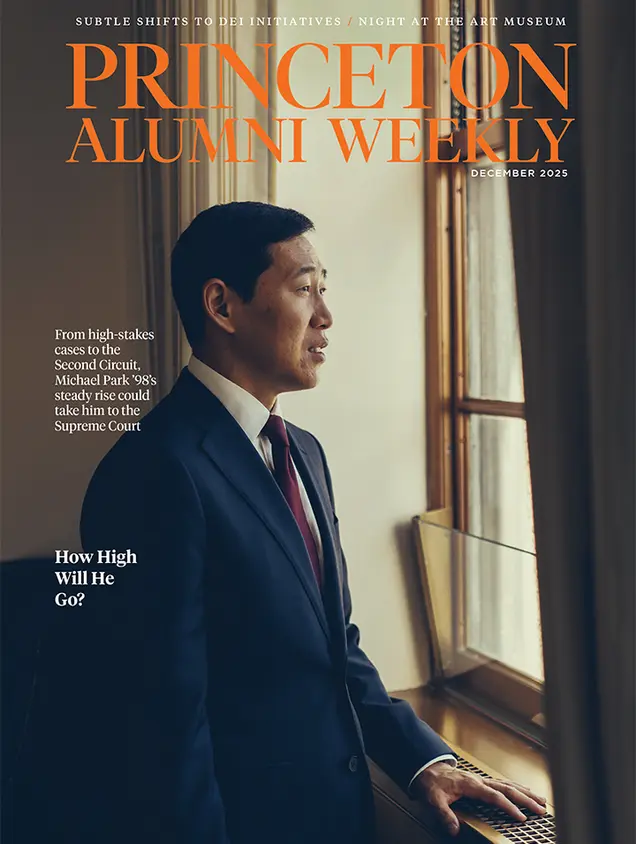No Way Home: The Decline of the World’s Great Animal Migrations
(Island Press)
The author explores the great migrations — how animals travel and why — and the growing threats to long-distance travelers, due to issues including climate change, overdevelopment, and pollution. The abilities of fish to swim the oceans, of wildebeest to cross the Serengeti, and of birds to fly south have all been marred; as a result, he argues, we are witnessing a dramatic decline in migrants. Wilcove is a professor of ecology, evolutionary biology, and public affairs at Princeton.

Paw in print
Image

The Latest Issue
December 2025
Judge Michael Park ’98; shifts in DEI initiatives; a night at the new art museum.
